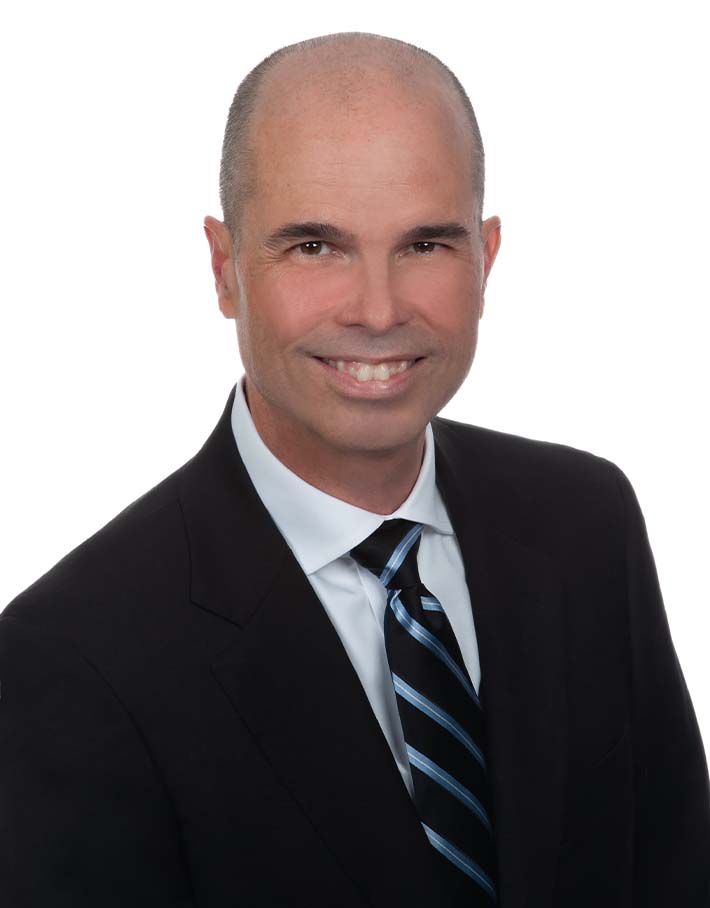
Succession planning begins with a strategic decision on how to create value moving forward, as well as a plan for the unexpected. Many firms are multi-generational, and in some cases, lifetimes have been spent creating a very valuable asset.
In today’s environment of acquisition and consolidation, thinking about succession and how you can monetize your assets should be a part of your strategic planning process. In this Oyster Stew podcast, Oyster’s CEO Buddy Doyle and David Williams, Head of Business Development, share their insights on the value of strategically planning your exit.
Transcript
Transcript provided by Temi transcript services
Oyster: Succession planning begins with a strategic decision on how to create value moving forward, as well as a plan for the unexpected. Many firms are multi-generational and in some cases, lifetimes have been spent creating a very valuable asset. In today’s environment of acquisition and consolidation, thinking about succession and how you can monetize your assets should be part of your strategic planning process. In this Oyster Stew podcast, Oyster CEO, Buddy Doyle, and David Williams, Head of Business Development, share insights on the value of strategically planning your exit from what to consider in an acquiring firm, to what you might expect once the deal is done. Buddy let’s get started.
Buddy Doyle: Thanks Libby. Today, I’m joined by Dave Williams, who has done a lot of work with our clients to help them determine how to develop their succession plan for their firm, how to find the right buyer for your firm or partner to merge with. So Dave, welcome. I’m excited to have you here,
David Williams: Buddy. It is great to be here. Thank you for having me.
Buddy Doyle: I think anyone thinking about starting an RIA and anyone who’s running an RIA probably has some designs on how this will end. And certainly as an entrepreneur myself, I think through exit strategies and how we built Oyster and how we’ve approached this here. And honestly, when we started Oyster, we kind of were building a business to last and to outlast us and we had made the decision, do we want to have the next generation take over from the founders? Do we want to do a sale transaction to a strategic partner, to a private equity firm? Or do we just keep doing this until they carry us out in a box? And so I think that everybody’s got to face this and I think, let’s probably take off the table getting carried out in a box. I think it’s probably not a lot to add to that conversation, but when you’re thinking about a strategic partner or an acquirer, Dave, what are some of the things that you’ve seen our clients go through in terms of approach and how do they feel about it?
David Williams: So when I think about a business, and I’ll just say a business in general, Buddy, I know we’re specifically talking about the financial services business and probably more specifically talking about an investment advisory firm. Most individuals have put a lifetime of work into building a business like that. It could be as little as a couple decades, or as I say, as much as inheriting it from another family member where you started at a very young age and had been there for those many years. But if you think about your business, you should be thinking about it from a standpoint no differently than any other large asset in your life, whether it’s your house, whether it’s your stock portfolio, whether it’s anything. But this is probably your most valuable asset that you own, and you clearly would, should be trying to maximize the value of that.
It can’t be kind of a spur of the moment thought. You need to start planning for that. You need to start thinking about that many years in advance of actually when that event is going to occur. Hopefully it’s not being carried out in a box. Hopefully it’s something a little bit better sounding than that, but assuming that’s the case, you should be thinking about that at least five years before that event. I know that’s hard to predict because lots and lots of things change in the financial services world that could veer that timetable off a little bit. But you should be thinking about it well in advance, and what you should be thinking about is what does that end state look like to me? Does it look like I want to cut the cord completely?
I want to sell it. There’ll be a period of time where I have to move my clients over to the new owner. I realize that, but after that, I want to exit the business as quickly as I can. Or you may be thinking, I kind of like this business. I want to monetize what I’ve done, but I want to stay on with the business. So that’s kind of in another direction. So one of the things you need to be thinking about as you think about that new partner who will be acquiring your firm is – what does it look like for me? What do I think I want to do in that event that occurs down the line? I think that’s the first thing, Buddy, you need to be thinking about what is the most favorable end game for me? What does it look like?
Buddy Doyle: I think once you’ve sort of laid out that favorable end game for you, then it’s finding the right partner or partners to help you execute on your game. You’ll find out things about your business as you go through the sale process, and it may change your mind a little bit on where you want to end up. Deals get structured in a lot of different ways to either incent you to stay, or I guess in some cases, incent you to leave. I think that process is one where someone is looking at any asset, there’ll be some pros and cons to the decisions you want to make about your own life.
I think another thing to keep in mind when you do sell your business, you’re probably not going to be the person in charge anymore. So I think as you’re going through all of these things, think about how you can work with your potential new partners. Dave, what are some of the things that you’ve seen firms uncover in due diligence that can be surprising to founders of organizations.
David Williams: So I want to kind of touch on what you said initially, and then talk about some of the surprises that occur as an owner sells his or her firm. One of the wonderful things about the landscape today is that it is clearly a seller’s marketplace. Premium prices are being paid for assets today, and most specifically those assets that create reoccurring revenues are at an all-time high – higher than we’ve ever seen them before in the 40 plus years that I’ve been in the business. So there is a lot of choice for a seller out there, and the choice comes in many different flavors. It can be a very large firm that is an aggregator of investment advisory firms. It can be what we call a large independent contractor firm that has as many as tens of thousands of financial advisors that’s looking to create liquidity events for smaller organizations. It can be midsize firms that are kind of up and comers. It can be small firms, it can be private equity firms. All bring a little bit of a different kind of flavor to the equation. It’s a challenging process to look at the differences and try it to discern what are the pros and what are the cons of each. But as you’re going through that process and looking at all those different choices you have, I think to your point Buddy, about you’re probably not going to be in control anymore, cannot be overemphasized enough. I’ve seen just a recent situation in the last couple years where an investment advisor sold his practice to another investment advisor and personality wise, they were extremely compatible, but both of them ran their businesses very differently.
They used different portfolio management systems. They used different CRMs. They interacted with their clients differently with performance reports, for example. They had challenges melding those two different ways of doing business together because they both were fairly adamant about the way they were doing things. The individual selling had to somewhat acquiesce to the person buying because he is the new owner of the company, and at the end of the day, he was in control. So I think early on, you need to be thinking about those different ways that you do business and how those potential changes will have to occur on the seller side, because ultimately the buyer will be in control and will dictate the ways that you will interact with your client.
Buddy Doyle: And I absolutely have seen that over and over again. I think that it’s important if you want to realize the value of a merger of equals and there’s always somebody, almost always somebody that’s more equal in a merger of equals, who ends up being the decision maker on the direction things go. But you value companies based off of a little bit of the art of what the combined entity will look like. And so keep in mind, especially when they’re earn out components and things like that are set based off of future goals, if you’re going to achieve those goals there’s going to be some compromise that has to take place. I think that rational decision-making process around things that are unemotional, knowing, again as a founder of a company, you’ve got to be ready to go through some of those things.
And even if you’re not the founder of a company, but you’re the person running an organization, it can be an impactful thing and you should have your eyes wide open. I got to spend some time with someone who’s sold a reasonably sized organization, a few thousand people in it to one of these large bank organizations. It’s startling when you go from being the CEO of an organization and running an executive team, to going to a senior leadership meeting that has a couple of hundred people in it and you’re one of them. It’s a remarkable transition that you can go through and you’re going to have to be accepting of that, or you’re probably not going to get all the way through your deal.
David Williams: Yeah. The operative word is scale, Buddy. We all know what that word means. It could be the scale of putting two firms together. It could be the scale of being the 53rd acquisition of a much larger organization, but every firm is trying at some level to attain a level of scale. What that means to the seller is at some point you are going to have to place your firm on the scale of that firm that’s acquiring you, which means change in doing business differently, going forward, because the scale equals the cost savings. And that’s what everybody’s trying to attain when they’re acquiring another organization.
Buddy Doyle: They’re looking for cost savings, but there’s also a desire to keep the assets at the firm, a desire to keep the people who serve the clients at the firm for the right amount of time. And so your risk tolerance, the buyer’s risk tolerance, your desire to grow assets, their desire to grow assets. You may have different risk tolerances, but you’re probably aligned in your interests. I think, it’s important to just keep that mindset as you’re having these discussions. You’ve got to get from the point of what are they doing to me to what are they going to do for me relatively quickly, or these deals can really go badly.
David Williams: I agree with that a hundred percent. I think that gets back to what we were talking about earlier, which is doing your homework during your due diligence process. You can certainly hire an entity to help you go through that due diligence process. That does not eliminate your responsibility because at the end of the day, it is your firm that you’re selling and how it’s going to land in a new owner’s organization. You’re going to be the one living it long after the entity that you hire goes away and has earned their fee to help you out in that process. So you have probably the greatest due diligence responsibility to make sure that fit, that culture, and those words that you’re very familiar with, all fit together in your new world.
Buddy Doyle: I think that’s a good bit of advice for folks who are going through this process of how do I monetize this business or how well do I monetize this business, even though you haven’t started it yet. To those of you who haven’t started it yet, I think that the equation is much more complex because you have not yet decided. Are you going to bring in partners into your organization and shareholders into that organization who haven’t yet maybe achieved the success of multi-generational entities, or decades of work to become an overnight success? So if you’re putting this together, it’s really important to contemplate what happens if your business goes really well? What happens if your business goes really poorly?
But the other thing to do, and we both mentioned at the beginning of this, we’re not going to talk too much about the going out in a box, but there are untimely things that can occur for you personally, where maybe it’s not time for you to retire yet, but other life events come along and accelerate your timeline a little bit. And I think that there are opportunities for you to have contingent partners in case something happens. Certainly there’s life insurance options for folks that aren’t expecting to go out in a box. Here you are out bicycling on a nice weekend. And next thing you know, you’re not able to work.
David Williams: Yeah, Buddy, it’s those unforeseen events that you can’t plan for that just happen. And we have seen it in some of the firms that we’ve worked with where the business owner unexpectedly passes away and his widow is now in control of a firm that she probably does not have a lot of knowledge with. And it’s a little bit of a scramble to try to figure out what that monetization event will look like, what that succession plan is, because it’s real time that you’re working with that succession plan, it’s happening as you speak. You really don’t want to be in a position where you have not planned for that event that no one wants to see but does happen. So we emphasize thinking about it when times are good, when there is no urgency and building up to that point where you think that’s when that event will occur.
Buddy Doyle: Dave, I know that’s some personal situations you’ve gone through. It’s tough when you’re at that point, but there are paths forward from pretty much any place that you are. So, Dave, what are some of the key points that acquirers are looking for when they’re buying a business? Any commonalities there?
David Williams: So when you think about what a buyer is looking for, I think at the top of the list, and I’ll call it, is the stickiness of the assets. So how loyal are those client relationships to your advisors? What do those client relationships look like? Are they elderly? Are they mid-range? Are they young? Because the buyer is looking for assets that obviously will move over to his or her business and will stay there because they’re going to be paying a lot for those assets. They’re going to be paying a lot for those client relationships. So how loyal are they to your financial advisors? Part and parcel to that is, how loyal are your financial advisors to you? When you announce to them you are selling your firm to another entity, are they going to be shocked? Are they going to be loyal to you? Because they’re going to immediately ask what’s in it for them, because ultimately they think of themselves as kind of the owner of the value of your company, which is your client relationships. They are front and center with that, they’re on the front line with that relationship. So there’s going to be an expectation from your financial advisors to hold onto those client relationships. So, as I think about what’s important, it’s retention of those relationships and those assets are probably the most important ingredient of realizing the value of your firm.
Buddy Doyle: I think that’s really important to understand. So when they’re coming in to do due diligence, they’re going to look for some consistency. They’re going to look for stability. They’re going to value that, and the things where you don’t see stability and you don’t see consistency, they’re going to devalue that part of your book. I think that’s really important to understand. So you’ll want to make this decision about selling your business before you sell your business. But some of the factors to keep in your head is that turnover rate of your advisor staff, the stickiness of those client assets. And I think when you look at the advisor team, you’re going to be asking yourself some questions about risk as well. Will they stay, will they go – and that’ll impact your deal.
David Williams: You know, another aspect too, Buddy, is how are those assets being managed by your advisor teams? So are they being managed individually by each advisor or advisor team? Are there models that are created by, I’ll say the home office, are they home office models and used by your advisors, or do you outsource the management of your client relationships, kind of the importance of the financial advisor in those client relationships, if they’re individually managing it, using a home office model, or outsourcing the management of those client relationships.
Buddy Doyle: I think different firms have different goals and objectives, including the acquirers. They’re going to be looking for you to be a cultural fit with them, just like you’re looking for them to be a cultural fit for you, and that’s something to just be really open and honest about. I think if it’s not the right fit you should be aware of that. You should do your best to understand maybe this isn’t the right acquirer for me. And it’s okay to move on. Nobody wants their time wasted. You know, just because a deal looks good in projection, if you have information you’re not sharing, the actual results may look different. I’ve never seen a deal move forward that failed in projection, but I’ve seen some things that maybe people wish they would’ve opened up about before they all agreed to a deal.
David Williams: I was just going to say, don’t always be wooed by the highest upfront dollar amount, because if advisors and their relationships are not retained, that large upfront dollar amount quickly diminishes. And you are just literally, every day kicking the can down the road and say, I’ll think about it tomorrow. I’ll think about it tomorrow. I can’t emphasize – you think about the size of the asset and the value of the asset that they’ve put so much work into. How can you not prioritize maximizing that asset when the time is right? That to me is the most important message I think we want to get across in this podcast is – do not keep kicking the can down the road.
Buddy Doyle: Well, I do agree with you, Dave. I think when you’re kicking the can down the road, you need to stop kicking the can well before it’s time for you to want to exit. There is a multi-year process that often comes in transitioning a business. And it is from the time of realizing that your financials need to look a certain way to a prospective buyer, to entice them to pay as much as you want. Right? And when you’re in growth mode, profits can be important because they fund the things that you’re going to do with your platform. They aren’t as important in terms of ratios and startup mode, as they are, when you’re thinking about being acquired.
David Williams: If you’re a broker-dealer or you’re dually registered, and a big portion of your business is still transactional, you should be thinking about that today. You should be thinking about as our industry has evolved, transitioning that business to a more advisory oriented type of business, because that’s the primary value that buyers are looking at nowadays. They’re certainly are interested in your overall AUM, but most specifically, what they’re interested in is the reoccurring revenue that gets created from your advisory business. And today you can start making that transition and building your business towards advisory. And if you’ve got a five year runway, you can make a big change in the value of your company.
Buddy Doyle: I agree the transactions you’ve done in the past are in the past, and your buyer is more concerned with the future. And so that’s why they tend to value those recurring revenue assets higher, those fee-based assets, higher than the transactional assets.
David Williams: Sweep assets have been dormant from a revenue standpoint for the last, how many – every year, two or three years, and we feel with rising interest rates, that’s probably going to change. So again, value of your organization and increase in value in your organization with interest rates rising, compression going away, and getting the value from your sweep assets may be changing. But having said that, and this is where I know you’re going to jump in here, Buddy, what is the value of those sweep assets looking forward? We’ve already seen the SEC think that you cannot share in the revenue in those assets and FINRA, as it relates to broker dealers, may not be too far behind that.
Buddy Doyle: No, I think you’re right. There are certain asset classes and again, firms are going to put a risk lens on what they’re willing to pay for an asset, just like they do in every other asset in a portfolio, you’re kind of predicting what the economic environment will do to the value of those assets, whether it’s a municipal bond in your municipal bond portfolio, or it is a money market sweep, asset allocation, where you might get paid to spread and that spread may be declining over time. It is a very forward-looking marketplace in terms of how much do I really want to pay for revenue that I’ve seen historically, when I see a trend moving us down a path. I think that’s just part of the thing that you’re going to have to go through in this process is somebody’s going to be sitting on the other side of you just like every stock trade with their own idea of value and where this is going. Money market sweeps are going to be a major component of that in a changing interest rate environment.
But a changing interest rate environment could also make fixed income portfolio managers look a little different than they did in the past. And in a rising interest rate environment, you worry about the assets, but you also look at how that asset performs versus benchmarks to get a good high interest rate environment going again. And these fixed income asset managers are going to look very interesting as well. I think it really all comes together in this acquisition process. And it’s a due diligence that that can feel interesting. You’ll go through a long period of being probed and questioned and reexamined about why did you make that decision? These are very healthy, interesting things to go through in terms of a business. Founder syndrome is a real thing, right? If you are the founder of a firm, you often have an overinflated view of value compared to the market because you’ve put your heart and soul in it. Realize the market’s going to value you how the market’s going to value you and just be settled and ready to go through that process.
David Williams: And I would say, because you’ve put your heart and soul into it, you should always be thinking about what the future looks like.
Oyster: Thanks everyone for listening. If you would like to learn more about how Oyster can help you with your succession planning, contact us at oysterllc.com. If you like what you heard today, give us a review on whatever platform you listen to so it’s easier for listeners to find us Have a great day.




